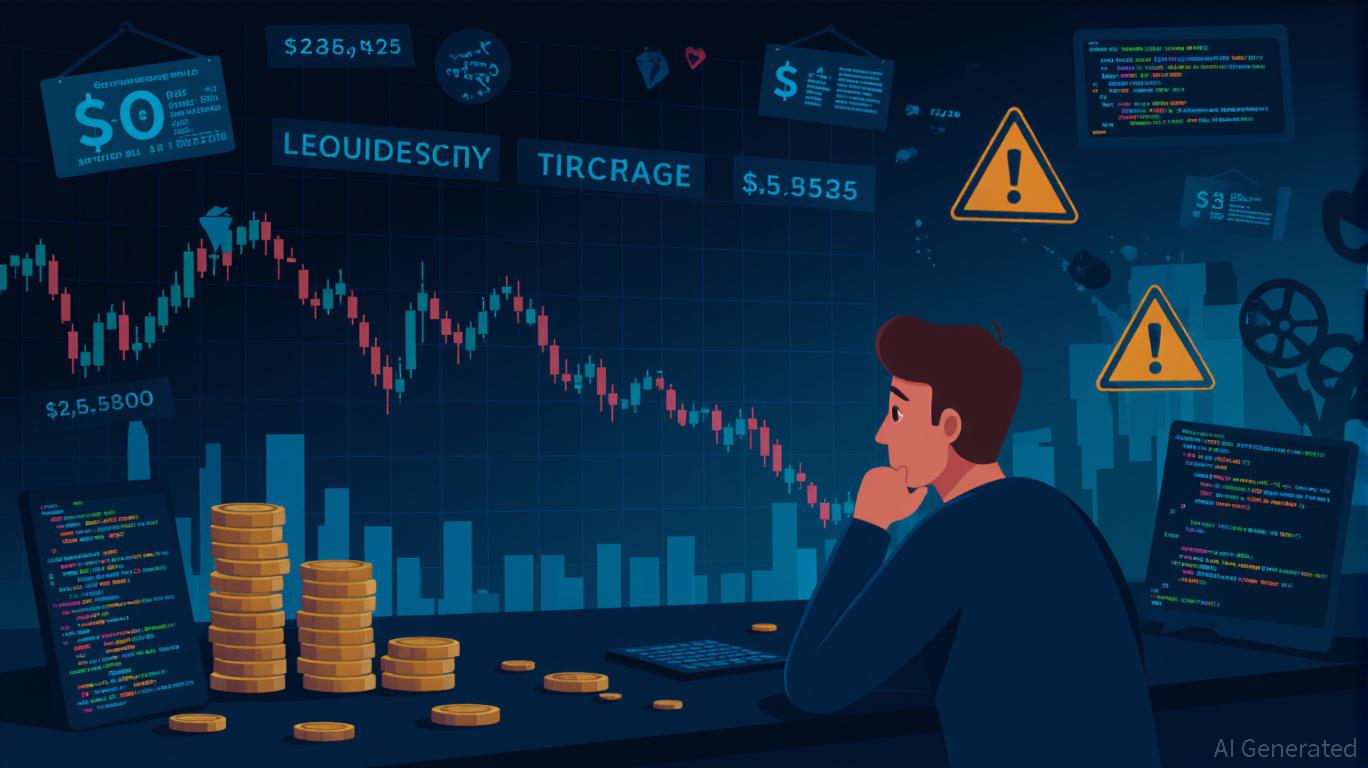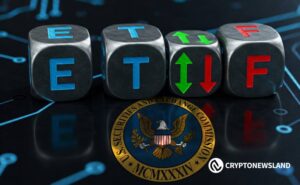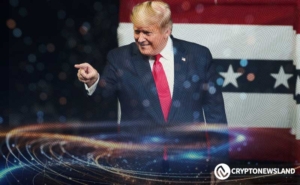Navigating the Dangers of New Cryptocurrency Tokens: Insights Gained from the COAI Token Fraud
- COAI token's 2025 collapse exposed systemic risks in algorithmic stablecoins, centralized governance, and fragmented regulatory frameworks. - xUSD/deUSD stablecoins lost dollar peg during liquidity crisis, while 87.9% token concentration enabled panic selling and manipulation. - Regulatory gaps pre-collapse allowed COAI to exploit loosely regulated markets, but post-crisis reforms like MiCA and GENIUS Act now demand stricter compliance. - Investor sentiment shifted toward transparency, with demand for re
The COAI Collapse: How It Happened and Systemic Weaknesses
The downfall of COAI stemmed from the volatility of its algorithmic stablecoins,
Regulatory challenges added to the strain.

Regulatory Blind Spots and the Road to Harmonization
Prior to the COAI crisis, algorithmic stablecoins operated in a largely unregulated space.
Following the collapse, efforts such as the EU’s MiCA and the U.S. GENIUS Act are driving stricter requirements for capital reserves, independent audits, and consumer safeguards.
Investor Attitudes and Market Response
The COAI incident led to a significant drop in trust toward algorithmic stablecoins and AI-powered DeFi platforms.
This change has also influenced the broader DeFi landscape. Projects lacking transparency or with centralized authority now face increased skepticism, while those adopting open governance and clear reserve disclosures are regaining favor. For investors, sentiment has evolved from a mere market signal to a measure of trust in a project’s core principles.
Best Practices for Vetting New Tokens
After COAI, due diligence now goes far beyond simple KYC procedures. Both founders and investors are encouraged to use Know Your Wallet (KYW) methods,
Operational due diligence (ODD) is just as important. Investors should confirm that funds are properly segregated, verify the legitimacy of funding sources, and ensure governance is robust—for example, by checking for
Conclusion: Creating a Risk-Conscious Crypto Portfolio
The COAI event stands as a warning for those navigating the crypto world. While advancements in AI and DeFi offer great potential, they also require careful examination of technical systems, governance, and regulatory fit. By emphasizing transparency, leveraging AI-powered audits, and keeping pace with regulatory changes, investors can better manage risks and spot projects with lasting strength.
As the sector evolves, the core principle for prudent investing remains: don’t just trust—verify.
Disclaimer: The content of this article solely reflects the author's opinion and does not represent the platform in any capacity. This article is not intended to serve as a reference for making investment decisions.
You may also like
Canary Capital Files With SEC to Launch the First U.S. Exchange-Traded Fund Directly Linked to MOG Coin

Dogecoin Jumps 7.7% to $0.1768 After Breakout, MACD Strengthens Toward $0.1846 Resistance

Trump Signs Funding Bill Ending Record 43-Day U.S. Government Shutdown and Restoring Federal Operations Nationwide

Privacy-Centric AI Platforms Emerge as AlphaTON and SingularityNET Transform the Standards of Responsible Technology
- AlphaTON and SingularityNET partner to deploy high-performance GPUs in Sweden’s hydro-powered data centers for Telegram’s Cocoon AI network, prioritizing privacy-first and sustainable AI infrastructure. - The collaboration combines CUDO Compute’s expertise and Vertical Data’s GPUFinancing.com to enable encrypted machine learning with user-controlled data, addressing gaps in ethical AI development. - Executives highlight privacy and decentralization as competitive advantages, aligning with Telegram’s 1B+
